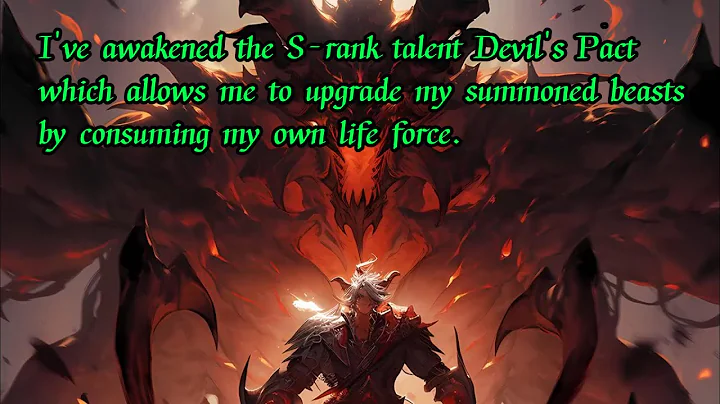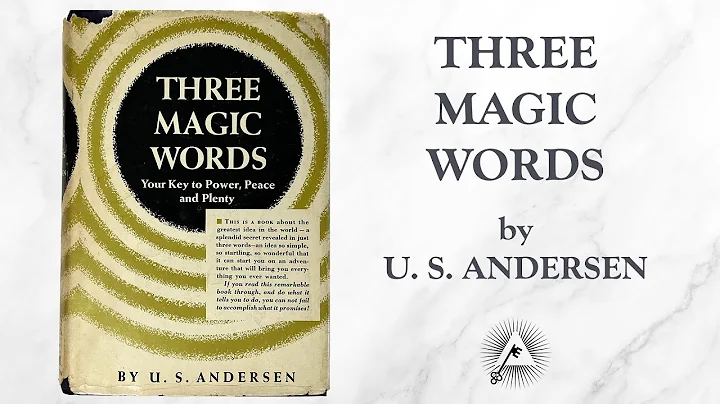On October 11, 1940, a news was published in Shanghai newspapers:
"Fu Xiao'an, mayor of Nanjing Government Special City , was killed in his private residence on Sigaotuo Road, Hongkou this morning. Fu was lying on the bed with his head hurt. His head was stabbed several times, the quilt was stained with blood, and a murder knife was left beside his pillow. The authorities were reported to be investigating and arresting the murderer. "
The so-called mayor of the special city of Nanjing actually refers to the puppet mayor of Shanghai. .

Picture | Fu Xiaoan
A big traitor was killed at home. For Shanghai, which was in the process of falling, it was nothing short of good news. Of course, this was also the second time this year that people were happy.
Just two months before Fu Xiaoan was killed, the traitor Zhang Xiaolin was assassinated by the bodyguard Lin Huaibu hired by his family. Lin Huaibu himself was also arrested, and was later sentenced to 15 years in prison by the French Concession , short In two months, two traitors were killed one after another. There were different opinions, and some people pointed out that both cases were the work of " military command ".
Although there are many similarities between the two cases in various properties, based on clues and gradual analysis, the truth of the two cases is not exactly the same.
Military Command Shanghai District Chief Chen Gongshu Although an anti-rape order was issued against Zhang Xiaolin, the leader of the action team Chen Mo failed to plan the assassination twice. Lin Huaibu himself was the bodyguard hired by Zhang Xiaolin after the assassination. Later, due to salary issues, he He had a dispute with Zhang Xiaolin, and his request for leave was not approved, so he beat Zhang Xiaolin to death out of righteous indignation.
After Lin Huaibu was arrested later, he explained the cause and effect of the incident in detail, and was later sentenced to 15 years in prison. After the victory of the Anti-Japanese War, Lin Huaibu asked someone to find Du Yuesheng's butler Wan Molin , hoping to be recommended by him, Zhan Yi was rejected by Wan Molin, but Wan Molin considered that Du Yuesheng and Zhang Xiaolin were sworn brothers, and Lin Huaibu's behavior was not due to underground work, so he declined him politely. Lin Huaibu's life was always in poverty later on, and he was not taken care of until after the founding of New China. Although he participated in the assassination of traitors out of personal loyalty, his glorious act is still worthy of our praise.
It can be seen that there should be no relationship between Lin Huaibu and the military commander.
As for the murder of Fu Xiaoan, the situation is completely different from that of Zhang Xiaolin.
Although the whole case is confusing, it is basically certain that Fu Xiaoan was hacked to death with a kitchen knife by his family's chef Zhu Shengyuan. Unlike Lin Huaibu, Zhu Shengyuan's ending was unclear, and many theories were even circulated later.
A righteous servant kills his master
On March 30, 1940, Wang Jingwei made peace with Japan in Nanjing and established the Nanjing puppet regime.
Suddenly, a large number of traitors surfaced one after another. They took refuge in the Japanese and puppets and sold their ancestors for glory. Considering the harmfulness of the traitors' anti-Japanese situation, the military commander repeatedly planned to assassinate military and political personnel who surrendered to the Japanese and puppets.

Picture | Wang Jingwei
On February 29, 1939, the Minister of Foreign Affairs of the pseudo-reformation government Chen Lu came to Shanghai to celebrate the Lunar New Year. Suddenly, he was blocked in the door of his house by more than ten strong men holding weapons. A melee broke out. Chen Lu He died on the spot. One month later, on March 21, former Secretary-General of the Central Political Council Zeng Zhongming was assassinated at No. 27 Gao Lang Street in Hanoi. It was found that it was the work of military commanders. In just two months in the autumn of 1939, the military commanders assassinated 12 "famous traitors" and more than 30 ordinary traitors. Among the "famous traitors" is Li Shiqun's mentor, Ji Yunqing.
The military commander used all means to assassinate these traitors who surrendered to the Japanese and puppets, which aroused the fear of the Wang puppet authorities.
The Wang puppet government immediately began to consider counterattacks. While taking various measures and means to counterattack, it also strengthened security work.
As one of the famous traitors, Fu Xiaoan was always in fear. In fact, in order to deal with the possible assassination by the military commander, Fu Xiaoan not only had a lot of servants in his own home, but also hired 23 bodyguards. As for his bedroom, it was even more tightly guarded. Even family members can't get close easily, let alone outsiders. In addition, every time Fu Xiao'an travels, he rides in an armored car. There are four guard cars in front and behind the car, which are full of guards. There are also a large number of guards around the office building for protection.
At first, Chongqing tried to instigate Fu Xiaoan to be used by me, but later it was discovered that Fu Xiaoan was devoted to being a hard-core traitor, so they decided to assassinate him. Military Unification Bureau Shanghai District Chief Chen Gongshu received the task of assassinating Fu Xiaoan and made several plans, all of which failed.
However, Fu Xiaoan failed to block the butcher's knife in the end.
Just when Chen Gongshu was at his wits' end, he heard the report from his second action brigade:
"We have opened an internal line at Fu Xiaoan's residence and are waiting for action."
The internal line that was opened is the chef at Fu Xiaoan's home. Zhu Shengyuan.
Zhu Shengyuan had been working in Fu Xiao'an's family since his father's generation, and was a loyal old servant of the Fu family. At that time, the military commander opened a tavern outside Fu Xiao'an's home. Zhu Shengyuan often went to drink. After the military commander learned about Zhu Shengyuan's situation, he waited for an opportunity. He persuaded Zhu Shengyuan to "eliminate relatives for justice". And Zhu Shengyuan did show a lot of indignation, so he agreed to the military commander's request.
At 3:40 in the morning on October 11, 1940, Fu Xiaoan returned from a social gathering. Zhu Shengyuan handed him a bowl of Tremella soup. Fu Xiaoan did not drink it, so Zhu Shengyuan served his master to sleep. After Fu Xiaoan fell asleep, Zhu Shengyuan said that it had been prepared. With a kitchen knife, he slashed Fu Xiaoan's head several times, then closed the door and left quickly.

Picture | Zhu Shengyuan
Zhu Shengyuan was still very conscious at this time. He knew that if he escaped from Fu's house at this time, there would be guards guarding the outside, and he would definitely be suspected if he showed up alone at night, so he waited until dawn before carrying the food basket. Escape on a bicycle pretending to buy groceries.
Because Fu Xiao'an socialized very late on weekdays, and he slept in the bedroom, the family thought he was tired, so they didn't call him until after three o'clock in the morning. The family felt something was wrong, so they pushed the door open and went in. , and found that Fu Xiaoan had been hacked to death on the bedside.
What is surprising is that when Zhu Shengyuan assassinated Fu Xiaoan, no one in the family's bodyguards or attendants noticed it. Even if Zhu Shengyuan could successfully get in front of Fu Xiaoan with his connections, there must be some movement when a person is hacked to death. The Japanese Military Ministry later An investigation was launched around Fu Xiaoan's residence, but nothing was found in the end. However, the surrounding people were deeply affected and dared to be angry but dare not speak out.
All parties involved
The above is basically the cause and effect of the assassination of Fu Xiaoan. Although most of the written records written by all parties afterwards have discrepancies, the overall process is not very different.
There are many discrepancies in the details of the case in the records of all parties.
One is a side story.
There are many rumors circulating on the Internet that Zhu Shengyuan's affair with Fu Xiao'an's family members was discovered by Fu himself. Fu Xiao'an wanted to fire Zhu Shengyuan, but because of his own face, he asked Zhu Shengyuan to work as if nothing had happened for a week before leaving. However, within these seven days, Zhu Shengyuan assassinated Fu Xiaoan.
The above records come from the memories " Life History of the Anti-Japanese War " published by Chen Cunren, a well-known Shanghai traditional Chinese medicine doctor, after the war.

Picture | "History of Life during the Anti-Japanese War"
As a famous Chinese medicine doctor in Shanghai, Chen Cunren often visited some wealthy families in Shanghai, so he had heard most of the secrets of these families, and the articles he recalled were all obtained by the government media. A secret that I dare not make public.
However, this "tiddy news" statement only exists in Chen Cunren's records. There is no such record in the memories of all parties on the matter.
Another way of saying it is for money.
Zhu Shengyuan risked his head by doing this, so on the surface, this request is understandable.
Wan Molin's "The Past in Shanghai", Chen Gongshu's "Shanghai Anti-Japanese Action Behind Enemy Lines", and Guo Xu, deputy director of the Military Tong Accounting Office, "The Death of the Traitor Fu Xiao'an" all mentioned Zhu Shengyuan's request for money.
Wan Molin mentioned in his memories that Du Yuesheng had a bodyguard named Zhang from Shandong. One day he came to him mysteriously and said that he had a big business and wanted to take over it. Wan Molin asked, The bodyguard surnamed Zhang only said three words: "Fu Xiao'an."
As Du Yuesheng's chief steward, Wan Molin naturally knew some inside stories about the military commanders and knew that they had already planned to get rid of this big traitor. Wan Molin was also very happy to get rid of this traitor.
"Is there any way."
Lao Zhang came up and told Wan Molin:
"One of my fellow countrymen, his name is Zhu Sheng, he is Fu Xiao'an's bodyguard. He came here to pocket this business himself."

Picture |Fu Xiao'an
Wan Molin knew that it was not easy for the military commander to assassinate Fu Xiao'an. When he heard that he could start from the people around Fu, he felt that the matter was inseparable, so he asked:
"What are the conditions of that person?"
"Very good Simple." Lao Zhang shrugged:
"He wants 20,000 yuan."
Wan Molin felt that it was worth spending 20,000 yuan to kill a traitor, so he asked:
"You go to the camera. , after it’s done, come to me and get the money.”
However, in Wan Molin’s memory, although Fu Xiaoan was later killed, no one came to him to ask for money.
Chen Gongshu also mentioned that when his second brigade came to report to him about their contact with Zhu Shengyuan, they mentioned that Zhu Shengyuan hoped to receive a bonus of 50,000 yuan after the incident was completed. Considering the emergency situation at the time, Chen Gongshu had no time to think about it. , can only agree temporarily. In addition, Chen Gongshu also recalled that the most special thing about the assassination of Fu Xiaoan was that they asked for money first before doing anything.

Picture | Wan Molin
After the matter was completed, the military commander was also very generous. Dai Li immediately approved a reward of 70,000 yuan. In addition to the 50,000 yuan given to Zhu Shengyuan, there was also a reward of 20,000 yuan to the second brigade, and Chen Gongshu specifically noted in his memories that the 50,000 yuan was given to Zhu Shengyuan and was signed by him for confirmation.
In other words, Zhu Shengyuan should actually do things for money, not entirely out of righteous indignation.
In any case, the assassination of the leader of the traitors was considered by the society at that time to have deserved the death of the traitor. Either Yun was a military commander, Blue Clothes Society so-called, or Yun was a certain righteous man. But one thing was ignored, that is, whether it was Military agents, or a certain righteous person out of righteous indignation, they are all ordinary people. As long as they are individuals, they have to support their families, so asking for payment is no longer so incomprehensible.
What is the ending of Zhu Shengyuan?
However, it should be pointed out that the military commander also has his own explanation for Zhu Shengyuan's request for compensation.
Zhu Shengyuan first came into contact with the military commander, the second brigade under Chen Gongshu. This second brigade actually "received the reward on the premise of taking credit," as can be seen from the military commander's propaganda later, they also kept emphasizing that it was their own contribution.
According to "The Death of the Traitor Fu Xiao'an" by Guo Xu, deputy director of the Accounting Office of the Military Command, Zhu Shengyuan later arrived in Chongqing, and the fake legal currency awarded to him by the Military Command was only 3,000 yuan. For a long time afterwards, the Military Command was not only responsible for Zhu Shengyuan's accommodation. , and he would also be given a monthly allowance of 100 yuan in French currency. According to Zhu Shengyuan’s later conversation with Guo Xu, it was learned that when he left Shanghai, the military commander only paid him travel expenses and no other expenses.
Based on this description, we can probably know that the expenses paid by Dai Li this time were basically claimed by people from the military command, so that Zhu Shengyuan was left penniless for a long time after arriving in Chongqing.

Picture | Chen Gongshu
However, this so-called "taking credit" is a common thing in the military command. According to the organizational structure of the military command explained by Shen Zui, the military command bureau does not have a major field operation organization, and every operation is carried out It relies on the following special forces and action teams. The funds for these people are entirely dependent on the bonuses issued by Dai Li after completing the mission. Therefore, the achievement of assassinating Fu Xiao'an is likely to be regarded as a crime by military commanders. It’s time to ask for credit upwards.
As for the real executor, Zhu Shengyuan, he is unknown within the military.
Wan Molin talked about a past event in "The Past in Shanghai":
Du Yuesheng later told him that he met Zhu Shengyuan by chance. At that time, Zhu Shengyuan's living situation was already very bad. Wan Molin learned about it afterwards. After Zhu Shengyuan arrived in Chongqing, he basically supported himself by himself and never asked anyone for help. You must know that Zhu Shengyuan was already old at that time, but he made a living by setting up a cigarette stall on the street.
For such a meritorious person, Du Yuesheng thought it was necessary to help, so he brought him to see Dai Li so that he could declare his contribution. It is said that Dai Li was very generous this time. He not only gave Zhu Shengyuan 50,000 yuan, but also helped him Got a job.
This record of Wan Molin is more consistent with a submission that Zhu Shengyuan later left when he was in Chongqing. This is also an important document proving the historical facts of Zhu Shengyuan.
In his submission, Zhu Shengyuan introduced his experience in detail and also mentioned the meeting with Dai Li. However, in the original submission, he remembered that Dai Li gave him "ten thousand yuan of national currency" and that Dai Li did not help. Looking for a job. What is reflected in the entire submission is Zhu Shengyuan's helpless complaint about the bonus being "impersonated".
This point is not only different from Guo Xu's "The Death of the Traitor Fu Xiao'an", but also has some differences from Wan Molin's "Past in Shanghai".

Picture | Chen Mo, an underground member of the Communist Party of China who was lurking in the unification process.
It is also worth mentioning that Chen Mo, the captain of the Second Brigade of Chen Gongshu at the time, was an underground member of the Communist Party of China. He died in Shanghai on April 27, 1949. His biography clearly records that , once led his troops to assassinate Shanghai's pseudo-master Fu Xiao'an, As for the matter of taking credit and pretending to be the leader, it was probably not Chen Mo's own initiative, but a joint decision made by everyone at the time. After all, Chen Mo's main job at that time was to lurk in the military. If he seemed particularly unconventional, I'm afraid it will affect his ability to gain a foothold in the military and make it more difficult for him to work in the future.
In "The Death of the Traitor Fu Xiao'an" written by Guo Xu, most of the relevant details are fabricated and cannot be verified. This is the point where he is easily criticized, but Guo Xu’s book focuses on when Zhu Shengyuan was in Chongqing, and the entire process of his assassination in Shanghai. He listened to Zhu Shengyuan’s introduction at his residence in Chongqing, so there are some discrepancies and even fabricated details. Excusable.
For example, when Guo Xu mentioned Zhu Shengyuan, he repeatedly emphasized that Zhu Shengyuan had repeatedly persuaded him to resign from the Japanese and puppet authorities before assassinating Fu Xiao'an. In fact, given Zhu Shengyuan's cultural level and status, it was unlikely that he would persuade Fu Xiao'an.
Guo Xu also mentioned that when Zhu Shengyuan talked about Fu Xiaoan, he always burst into tears:
"I'm sorry for the old master, I failed to live up to the old master's entrustment."
highlighted Zhu Shengyuan's "righteous servant" side.
Although there are more or less problems, the greatest value of "The Death of the Traitor Fu Xiao'an" written by Guo Xu is mainly reflected in Zhu Shengyuan's experience in Chongqing, which exactly complements Chen Gongshu's "Shanghai Anti-Japanese Action Behind Enemy Lines".

Picture | Zhu Shengyuan's speech (clearly stated that the age is 53 years old)
After Zhu Shengyuan successfully assassinated Fu Xiao'an, according to Chen Gongshu's description, after he (Zhu Shengyuan) completed the task, he was escorted by Chen Mo to Pudong , and then under military command Chen Gongshu arranged a boat ride, scheduled to land in Zhenhai area, and then send him to the rear area. At this point, Chen Gongshu's memories came to an end. Naturally, he did not expect that Zhu Shengyuan would later arrive in Chongqing and meet Dai Li.
According to Zhu Shengyuan's description in his submission, he later moved to many places for more than a month. When he arrived in Shengxian County, he was misunderstood by the local militia and arrested, and was transferred to the Jiangxi Third War Zone Commander's Headquarters. After several investigations, the facts were clarified. After hearing what happened, the commander of the Third War Zone of Jiangxi at the time was Gu Zhutong . After hearing what happened, he specially allocated 300 yuan to Zhu Shengyuan and sent military police to escort him to the war capital (Chongqing). However, because the misunderstanding was not resolved, Zhu Shengyuan was imprisoned for another two months before being released.
Zhu Shengyuan’s experience after arriving in Chongqing is basically different. Zhu Shengyuan’s own words, Wan Molin’s memories, and Guo Xu’s memories are similar, but they are different in details. They have been introduced before. Yes, I won’t go into details here.
In most records, there is only one sentence left in the description of Zhu Shengyuan at the end. He opened a hand-rolled cigarette factory in Chongqing to make a living.
The situation is different from that of Lin Huaibu. He was acquitted after the Anti-Japanese War and lived until after the founding of the People's Republic of China. But after Zhu Shengyuan did that earth-shattering thing, he later disappeared into the vast sea of people, except for a part of him. His experience in Chongqing can still be traced, but what happened to him after his death? Did he live until the founding of New China?

However, according to research, Zhu Shengyuan was born in 1872. By the time he assassinated Fu Xiaoan in 1940, he was already 68 years old. If he could live until the founding of New China, he should be at least 80 years old. In that era, Under poor conditions, being able to live to the age of nearly eighty seems to be considered a long life.
However, according to the submission left by Zhu Shengyuan, he was only 53 years old when he wrote this submission. From this point of view, he should not have been born in 1872
But what is certain is that Zhu Shengyuan has never accepted anything in his life. Cultural education, at least compared to Fu Xiaoan, but his ability to make the right choice in terms of national justice is enough to prove that he is a hero.
"Get the name without seeking fame"
Perhaps for Zhu Shengyuan, none of this is important to him. He is just an ordinary person. He only desires to live an ordinary life, nothing more.





















